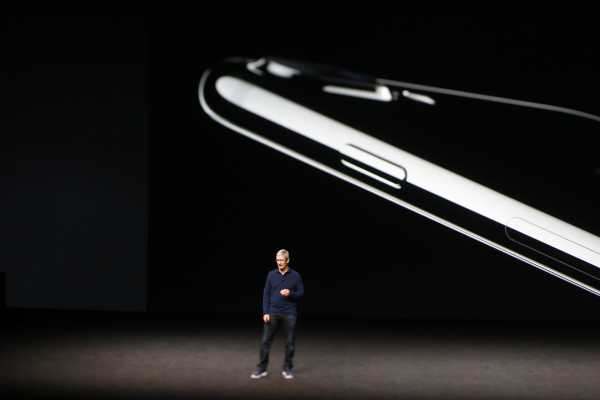
This story is part of a group of stories called

Uncovering and explaining how our digital world is changing — and changing us.
Apple has agreed to pay up to $500 million to settle a class action lawsuit over its phone batteries — and you might get a (small) cut of that.
According to Reuters, Apple will pay qualified iPhone owners $25 per phone, although this amount could be adjusted depending on how many claims are filed. (Think of that Equifax settlement that was supposed to give us $125 each, except so many people submitted a claim that it was significantly reduced). Nevertheless, the minimum amount that Apple must pay out will be at least $310 million.
The settlement will cover models 6, 6 Plus, 6s, 6s Plus, 7, 7 Plus, and SE devices that installed the software updates before December 21, 2017. If that’s you, don’t spend that $25 yet — the settlement still has to be approved by a federal judge.
The settlement puts a punctuation mark on what became known as “Batterygate.” In 2016, iPhone 6s owners began complaining that their phones suddenly shut down despite having plenty of battery life remaining. Apple eventually responded by admitting that a “very small number” of the iPhone 6s had an issue with their batteries and offering free battery replacements to those models. Then, owners of other iPhone models claimed that their devices were having similar shutdown issues and that the problem was more widespread than Apple would admit. Apple responded with a software update that reduced the number of shutdowns significantly.
But by December 2017, Apple was forced to admit that the update had fixed the problem by throttling the phone’s performance. Apple said it was merely trying to compensate for the degradation that naturally comes with aging batteries. Many customers, however, believed the company was really trying to force them to purchase new phones by making their old ones that much harder to use. Apple’s lack of transparency — that is, its only acknowledging problems after a preponderance of evidence made them impossible to deny and not telling users that the software updates would slow their phones down — didn’t help its case.
In response to a growing outcry, Apple apologized and offered to replace batteries in certain phones for $29 — cheaper than the usual $79 price tag, but not free. It also released another software update that allowed users to turn off the throttling feature.
Customers were not placated by this. Multiple class action lawsuits were filed in the US and were later consolidated into this one lawsuit, which Apple is now settling. Countries including France and Italy fined Apple millions of dollars over this issue, but those fines pale in comparison to the $500 million Apple will now pay out. Then again, according to its latest earnings report, Apple has over $207 billion in cash on hand, so half a billion bucks might not seem like a big deal to the company.
All this still hasn’t stopped Apple from throttling aging iPhones. The company said in November 2018 that the practice would continue for the iPhone 8, 8 Plus, and X models, explaining in a note to Congress that doing so would provide users with “a more advanced performance management system that more precisely allows iOS to anticipate and avoid an unexpected shutdown.” The difference now is that it would inform consumers that it was doing so — something it did not do before, and which raised the ire of consumers who perhaps would not have updated their software if they had known how it would affect their phones’ performance.
Still, the symbolic impact of such a large settlement might lead some to wonder how Apple feels about recent pressure from Washington over antitrust concerns. After all, Apple is no stranger to lawsuits over anticompetitive behavior. In 2016, the company settled a lawsuit brought by the Department of Justice over price fixing its ebooks to the tune of $450 million, with customers receiving between $1.57 and $6.93 per book. That case dragged out over several years, with Apple taking it all the way to the US Supreme Court — a much different response from this agreement to settle without admitting fault.
“In this case, Apple, may be trying to and appease federal officials to create a repository of goodwill in hopes of mitigating the plethora of antitrust remedies that can be imposed,” Daniel A. Hanley of the Open Markets Institute told Recode. “History has shown that being aggressively adverse does not bode well.”
Indeed, Apple has recently been in the crosshairs of antitrust investigations from the Federal Trade Commission and the subject of lawsuits from app developers and consumers over its app store monopoly. Apple and other massive tech companies are currently the subject of a Justice Department probe into whether its market dominance has made it impossible for others to compete. Yet another class action lawsuit filed by app developers accuses Apple of creating a monopoly through its App Store, which is the only way iOS users can get apps on their devices and therefore the only way app developers can sell their product to them. Oh, and the US Supreme Court ruled last May that an antitrust lawsuit against the company could proceed. There, iPhone owners accused Apple of passing along the cost of the 30 percent commission it takes from App store purchases to consumers, inflating prices while — due to users’ inability to get apps any other way — also creating a monopoly.
While the recent iPhone lawsuit is different from the ebooks situation in many regards, it doesn’t look good that Apple is paying out a nine-figure settlement linked to deceiving customers. By the same token, it probably would have looked a lot worse — and cost Apple a lot more — had Apple gone to court and lost.
Update, March 2, 2020, 3:35 pm ET: This article has been updated throughout.
Sourse: vox.com





